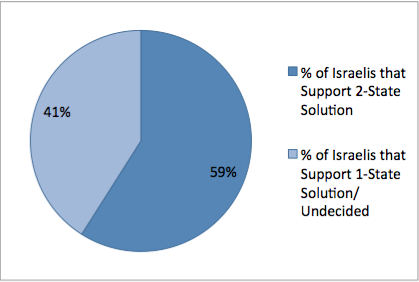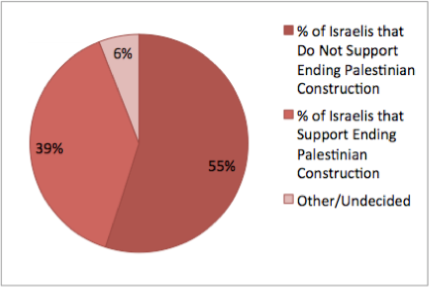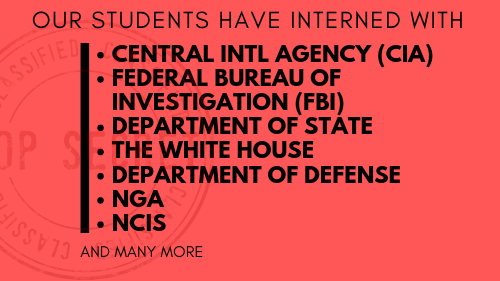
The Israeli populace reacts disparately to the ongoing Israeli-Palestinian conflict.
ISRAELI POLITICAL SENTIMENTS ARE SHARPLY DIVIDED; WHILE THE WEST OFTEN TREATS ISRAEL AS AN IDEOLOGICAL MONOLITH, RECENT STUDIES SHOW THAT ISRAELIS DISAGREE WIDELY ON IMPORTANT POLITICAL ISSUES.
On December 23, 2016, the UN Security Council approved Resolution 2334, condemning the establishment of Israeli settlements outside of the 1967 borders as “a flagrant violation under international law.”1 Media coverage on the resolution and its subsequent diplomatic dispute has not given much deference to the sentiments of the Israeli public. Any external representation of Israel’s perspective on the ongoing Israeli-Palestinian conflict often characterizes Israel as a single voice; unified and uncompromising toward an individual goal.2 A plethora of polled statistics, coupled with numerous individual interviews, indicate that the people of Israel hold largely disparate opinions on many key issues and can be better represented as a politically fractious society.
Israelis remain divided on their opinions of the ongoing conflict over the Palestinian Territory, the actions of Prime Minister Netanyahu, and the existence of Israeli settlements. A December 2016 poll conducted by the Peace Index and published by the Jewish Virtual Library in the wake of UN Resolution 2334 indicates that 55% of Israelis believe that Israel should not stop construction in the Palestinian Territories. Conversely, 35% of Israelis disagree.3 According to a poll conducted by the Palestinian Center for Polling and Survey Research and the Israel Democracy Institute, 59% of Israelis would support a two-state solution to the Israeli-Palestinian conflict.4 This stands in stark contrast to Prime Minister Netanyahu’s highly publicized election campaign statement, in which he said that there would be no two-state solution on his watch.5 Unbeknownst to most onlookers, a poll conducted in March 2016 under the supervision of Professor Camil Fuchs of Tel Aviv University reveals that 51% of Israelis believe that Netanyahu should leave political life in the next election.6 The interviews below indicate that both right and left-wing Israelis have serious concerns with their current prime minister.
The divide of opinion among Israeli citizens is closely tied to differences in political views, religious beliefs, and ethnic backgrounds. The previously mentioned poll conducted by the Palestinian Center for Polling and Survey Research and the Israel Democracy Institute further indicates that 10% of the Israeli right would support a two-state solution, along with 59% of the center and 88% of the left. Religious differences also contribute to the divide. 56% of secular Israeli Jews support a two-state solution, whereas only 10% of religious Israeli Jews support such a plan.7 Considering that the Jewish religion holds that all the Palestinian Territories are promised to Israel by God, it is unsurprising that religious Israeli Jews would be less
be less  willing to support a two-state solution.8 When asked the same question about supporting a two-state solution, 90% of Arab Israelis responded that they would.9
willing to support a two-state solution.8 When asked the same question about supporting a two-state solution, 90% of Arab Israelis responded that they would.9
Israel’s diverse populace seems only to agree that the international media is unreliable and biased against Israel and that recent US action has also been unfavorable toward Israel. 63% of Israelis view President Obama as “the worst President for Israel over the last 30 years” in a poll published by the Jewish Virtual Library.10 The interviews of politically and religiously diverse Israelis below demonstrate the prevalence of these beliefs.
In pursuing an end to the Israeli-Palestinian conflict, Western powers must recognize that securing the support of the diverse Israeli populace will be a difficult but vital task. It is not uncommon for Israeli citizens to resist international involvement in the Israeli-Palestinian conflict. The same previously mentioned poll conducted by the Palestinian Center for Polling and Survey Research and the Israel Democracy Institute reveals that only 27% of Israeli Jews prefer multilateral over bilateral negotiations.11 Past polls indicate that internal rather than external pressure is more effective in garnering support among the Israeli populace. A poll published by the Jewish Virtual Library reveals that 56% of Israelis believed that Netanyahu’s 2009 decision to freeze construction in the settlements would increase pressure on Israel to make additional concessions. Only 22% believed that it would not.12 Contrarily, a separate poll published by the Jewish Virtual Library reveals that 56% opposed the same demand when it was made by America instead.13 Israeli citizens have been historically more receptive to internal pressures. At present, the majority of the Israeli electorate is located on the right or the center.14 Additionally, the interviews below indicate that many Israeli citizens have little faith in the current leadership of their country. Change will have to first come from within an unsatisfied Israeli populace that is predominately center-right.15 The task of affecting change from within the Israeli populace will not be easy, but Israel’s sharp divides cannot be forcibly reconciled by external powers that either cannot or will not understand the diverse view points of Israel’s people. ■
The following interviews were conducted personally with four diverse Israeli citizens and reveal specific opinions on the aforementioned issues:

Interview 1
Name: Iris. Education: BA. Religion: Somewhat religious. Political Views: Center.
What do you think of Netanyahu?
As a politician, he is very talented. As a man, he is very selfish, dishonest, greedy, and dangerous. As a prime minister, he doesn’t care about his citizens and their well being or about the country. As a corrupted man, he corrupted all of the administrative systems in Israel. I hope he will go to jail soon. His policies all promote dictatorship and do nothing for the welfare of the people.
What do you think of the Israel-Palestinian conflict?
I believe that the people could get a long, but both governments encourage hatred as a method of ‘divide and control.’
What do you think of the settlements?
I don’t see any issue with them. Just like the Beduines in the Negev who come from Egypt and settle wherever they like, Israelis can settle in their land. In my view, the settlements are not in “occupied territories,” as the term is misleading. Once a country conquers a land in a war they did not initiate, it’s their land. That’s how it has always been and still is in any other nation. It is a manipulation of the term, and when it is used people think that Israeli government just woke up one morning and conquered the land. In my opinion, it is all Arab provocation to prevent Israel’s growth and establishment.
How do you think the conflict can be resolved?
3 factors must come into play:
1) genuine intent to live in peace,
2) education for peace and love rather than death and hate,
3) civilized discussions, not wars between 2 separate nations.
What do you think of international coverage on the conflict?
There is a lot of disinformation. It is very biased and bribed.
How do you feel about recent UN decisions that paint Israel in a bad light?
I find it meaningless as the UN has been anti- Israel all along. I find the recognition of Gaza strip as a member nation in the UN much more disturbing. This happened very quietly during Tzuk Eitan war.
How did you feel about the Obama administration’s actions toward Israel?
In general, I think that Obama was not good at all for the world; not even for the Americans.
Some of his actions toward Israel were fine and some were bad. I was convinced that he would try to assist the Arabs in destroying Israel, but we have survived. So, he was neutral.
What do you think about the new Trump administration? Do you think it will be better or worse?
I think it’s too early to judge. From my perspective, he is better than anyone who was in power for the last two decades. If he will be worse, it will be because of outside sources/ powers who do not want him (like Illuminati or Free Masons). His administration will do good things, but they will struggle; it will not be easy for them.
Interview 2
Name: Elon. Occupation: Business owner. Religion: Secular. Political Views: Center.
What do you think of Netanyahu?
I do not trust him, and I am not convinced that Israel’s interests are always his first priority. I think that he knows how to deal with the culture of our enemies and neighbors. I do not like how he treats good people around him when he thinks that they can endanger his position.
What do you think of the Israel-Palestinian conflict?
This is our destiny, and I do not see a real solution in the long run.
What do you think of the settlements?
They are a part of the war on this land. I would prefer that they not be there, but I think they are part of the defense of Israel.
How do you think the conflict can be resolved?
I do not think it can.
What do you think of international coverage on the conflict?
It is not equitable and it is a result of the fact that we are stronger.
How do you feel about recent UN decisions that paint Israel in a bad light?
The UN is not neutral, and it is driven by interests.
How did you feel about the Obama administration’s actions toward Israel?
I think there was a lot of bad communication between him and Netanyahu. In the end, his actions were not so bad.
What do you think about the new Trump administration? Do you think it will be better or worse?
Trump is not predictable. At the moment, it looks like it will be better for Israel, but we will have to wait and see.
Interview 3
Name: Shirat. Occupation: Attorney. Religion: Very religious. Political Views: Conservative.
What do you think of Netanyahu?
I think Netanyahu is good in terms of national security and for coping with the Israeli-Palestinian conflict, but on other issues such as education and the economy he is not doing as well.
What do you think of the Israel-Palestinian conflict?
I think this conflict will never be resolved because the Arabs do not want peace. They just want to get us out of here.
What do you think of the settlements?
On the one hand, I think it is better without them because they are fanning the conflict, and we are portrayed in a negative way. On the other hand, they contribute to the protection of the state. They are one of the most important things in the reality in which we live.
How do you think the conflict can be resolved?
I think that the conflict will be resolved only if there is a real desire of the parties to live in peace. Unfortunately, I feel that the Palestinians have no such desire.
What do you think of international coverage on the conflict?
I think that Israel is portrayed to the world as a militant and aggressive, and unfortunately we are seen as problematic.
How do you feel about recent UN decisions that paint Israel in a bad light?
I am unfamiliar with the decision.
How did you feel about the Obama administration’s actions toward Israel?
It was pretty clear that Obama was not among the supporters of Israel. I think it’s good that he left office.
What do you think about the new Trump administration? Do you think it will be better or worse?
He talks like he will be an ally of Israel and that he will benefit us. It is certain that he will be better for Israel than Obama.
Interview 4
Name: Ayala. Occupation: Manager. Religion: Secular. Political views: Liberal.
What do you think of Netanyahu?
In my opinion, he has serious personality problems which overwhelm his capabilities. He has rhetorical ability and charisma, which are the reasons for his success in being elected again and again despite the ongoing damage he causes to the state in all areas. I think that his main and perhaps his only goal is to remain prime minister and that all means are acceptable for him in order to achieve this goal. His policies reduce freedom of expression, the powers of the court, and human rights. All of these are not his declared policies, but I think these are the goals he set for himself in order to minimize criticism of his conduct and reduce the ability to depose him from government.
What do you think of the Israel-Palestinian conflict?
I think this is a very complex issue that has many layers and many overt and covert interests involved. With the current leadership in all parties involved (and there are many parties involved with many conflicting interests), I do not see any chance the conflict will be resolved in the near future.
What do you think of the settlements?
I think the settlements are an additional damaging factor in the Israeli-Palestinian conflict in addition to being an unnecessary economic & security burden.
How do you think the conflict can be resolved?
Only by a fundamental change in the interests of the parties involved.
What do you think of international coverage on the conflict?
I think, as media coverage in many cases is, here too, the reports are not balanced, sensational, shallow, and without a true understanding of the issue. For ratings, they sacrifice their integrity and fail at their duty to report reliable and comprehensive reporting.
How do you feel about recent UN decisions that paint Israel in a bad light?
As with all decisions of the United Nations, it is an unbalanced, unfair, and discriminatory decision. The UN’s conduct is based on political, economic, and security interests and not on the real values of aspiration to maximize the benefit of countries in the world.
How did you feel about the Obama administration’s actions toward Israel?
I think the Obama administration saw the reality in the world and in the Middle East differently from Israel, and therefore some of his choices were not as good as we hoped for.
What do you think about the new Trump administration? Do you think it will be better or worse?
Based on Trump’s political platform and statements so far, I am afraid the situation will be worse for the whole world, since the United States is the world’s leading democracy. ■
- Oded Haklai. “What do Israelis think about settlements? Turns out age matters.” The Washington Post. January 11, 2017. https://www.washingtonpost.com/news/monkey-cage/wp/2017/01/11/what-do-israelis-think-about-settlements-turns-out-age-matters/?utm_term=.39a0a66eb33b
- “History of the Israeli-Palestinian Conflict.” Public Broadcasting Service. December, 2001. http://pov-tc.pbs.org/pov/pdf/promiese/promises-timeline.pdf
- Yossi Verter. “Israelis Have Had Enough of Netanyahu, Poll Shows.” Haaretz. March 26, 2016. http://www.haaretz.com/israel-news/.premium-1.710777
- Adam Rasgon. “Poll Indicates Majority Supports Two-States, But Not On Previous Negotiations.” Jerusalem Post. August 22, 2016. http://www.jpost.com/Arab-Israeli-Conflict/Majority-of-Israelis-Palestinians-still-support-two-state-solution-464748
- Barak Ravid. “Netanyahu: If I’m Elected, There Will Be No Palestinian State.” Haaretz. March 16, 2015. http://www.haaretz.com/israel-news/elections/1.647212
- Yossi Verter. “Israelis Have Had Enough of Netanyahu, Poll Shows.” Haaretz. March 26, 2016. http://www.haaretz.com/israel-news/.premium-1.710777
- Adam Rasgon. “Poll Indicates Majority Supports Two-States, But Not On Previous Negotiations.” Jerusalem Post. August 22, 2016. http://www.jpost.com/Arab-Israeli-Conflict/Majority-of-Israelis-Palestinians-still-support-two-state-solution-464748
- Mitchell Bard. “Jewish Claim To The Land of Israel.” Jewish Virtual Library. http://www.jewishvirtuallibrary.org/jewish-claim-to-the-land-of-israel
- Adam Rasgon. “Poll Indicates Majority Supports Two-States, But Not On Previous Negotiations.” Jerusalem Post. August 22, 2016. http://www.jpost.com/Arab-Israeli-Conflict/Majority-of-Israelis-Palestinians-still-support-two-state-solution-464748
- “Opinion of US President Barack Obama.” Jewish Virtual Library. http://www.jewishvirtuallibrary.org/israeli-opinion-of-u-s-president-barack-obama
- Adam Rasgon. “Poll Indicates Majority Supports Two-States, But Not On Previous Negotiations.” Jerusalem Post. August 22, 2016. http://www.jpost.com/Arab-Israeli-Conflict/Majority-of-Israelis-Palestinians-still-support-two-state-solution-464748
- “Opinion on Settlements and Outposts.” Jewish Virtual Library. http://www.jewishvirtuallibrary.org/israeli-opinion-on-settlements-and-outposts-2009-present
- “Opinion on Settlements and Outposts.” Jewish Virtual Library. http://www.jewishvirtuallibrary.org/israeli-opinion-on-settlements-and-outposts-2009-present
- Yossi Verter. “Israelis Have Had Enough of Netanyahu, Poll Shows.” Haaretz. March 26, 2016. http://www.haaretz.com/israel-news/.premium-1.710777
- Yossi Verter. “Israelis Have Had Enough of Netanyahu, Poll Shows.” Haaretz. March 26, 2016. http://www.haaretz.com/israel-news/.premium-1.710777
Image Credits:
Israeli Flag | http://www.publicdomainpictures.net/pictures/190000/velka/flag-of-israel.jpg
Israeli Festival | https://upload.wikimedia.org/wikipedia/commons/e/e0/Israeli_American_Council_Celebrate_Is
Spring 2017
Volume 20, Issue 1
19 February






